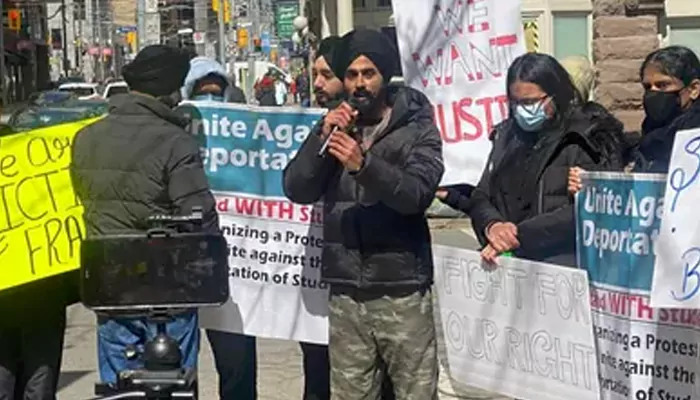Trump and Harris Face Off in High-Stakes Philadelphia Debate: Can This Showdown Truly Sway Voter Preferences?
- Devyani
- 1 year ago
- 5 minutes read

US Presidential Election candidates Donald Trump and Kamala Harris clashed over issues ranging from the economic crisis and wars to the economy and abortion at their first presidential debate hosted by ABC News on Tuesday. This is the first time that the Republican nominee and the Democratic candidate came face to face- the two have never met before. With just eight weeks ahead of the November election, many experts have indicated that the debate could act as a turning point in the presidential race for tens of millions of US voters who tune in to see the candidates answer questions and exchange criticisms. Can the debate bring about a shift in voters’ perceptions about the two nominees? Let us assess by having a look at the past presidential debates, and what polling and research suggest.
Can Presidential Debates Sway Election Outcomes?
Research suggests that presidential debates have nominal effects on election outcomes. Harvard Business School Associate Professor Vincent Pons and Assistant Professor Caroline Le Pennec-Caldichoury from the University of California, Berkeley, reviewed pre- and post-election surveys in ten nations from 1952 to 2017, including the UK, US, Canada, and Germany. Their study revealed that debates on television have minimal influence over voter decisions.
Surveys from 2000 to 2012 were analysed by a distinct study conducted by communication professors Benjamin Warner and Mitchell McKinney from the University of Missouri. The results revealed that voter preferences were rarely influenced by general election debates, with around 86.3% of respondents adhering to their choices post the debate. However, there have been instances where debates helped 7% of undecided voters to make a choice. Out of these 7%, 3.5% of voters altered their decisions post-debate. Barack Obama, for example, achieved a significant lead in the 2008 Presidential race following the first debate which was conducted on September 26, 2008.
Let us understand the insights provided by the recent election cycles regarding the impact of presidential debates on voter decisions.
Minimal Impact of Presidential Debates on 2020 Election Polls

- Ahead of the last presidential election, Donald Trump and Joe Biden faced off in two debates held on Septmber 29, and October 22, 2020.
- A poll conducted by Monmouth University based in New Jersey before the first debate revealed that 87% of the voters did not believe that the debate would have an impact on their voting choices.
- According to FiveThirtyEight’s polling average, the prediction turned out to be accurate. Joe Biden was at 50.1% and Trump at 43.2% on September 28, 2020. By September 30 of the same year, the Democratic candidate soared slightly to 50.5%, while Trump dropped to 42.9%.
- Nominal changes in the candidates’ polling numbers were observed around the second debate, reflecting similar trends.
- With 306 Electoral College votes and 51.3% of the national popular votes, Biden emerged victorious in the 2020 Presidential election.
Clinton vs. Trump: Debates Had Little Impact on 2016 Election Polls

- During the 2016 U.S. presidential race, Democratic candidate Hillary Clinton and Republican Donald Trump faced off in three heated debates. The two nominees clashed over issues like racial tensions in the US and remarks made by Trump about a beauty pageant winner. While Clinton held an assertive stance, Trump was more defensive.
- Although the post-debate coverage indicated that Clinton would enjoy the upper hand, there was little to no impact on the debate on the polls. As per FiveThirtyEight’s average, Trump was at 40.5%, while Clinton was at 42.4% on September 25, The figures slightly shifted to 41% and 42.5% respectively by September 27.
- Clinton moved ahead with 44.8% against Trump’s 39.8% by October 8. However, nominal effects on the poll results were viewed post the second and third debates between the two candidates held on October and 19, respectively. Clinton maintained her lead in popular support, ending with 48 percent of the vote to Trump’s 46 percent, but Trump won in the Electoral College, securing the presidency.
2024 Presidential Debate: Harris Surges Ahead After Biden's Struggles in Key Debate

Approaching the debate on June 27, Biden was trailing Trump by a narrow margin, according to polling averages from FiveThrityEight.
Biden’s presentation at the debate garnered significant criticism as he spaced out, maffled and often appeared incoherent. Trump witnessed a satisfactory increase in support between June 27 and 29, with his figure rising to 42.1%, while Biden fell behind at 39.9%.
Following Harris’ entry into the race as the Democratic candidate, this dyanmics saw a significant shift. After only three days of Biden’s withdrawal from the presidential race, by July 24, Harris’ support had surged to 44.9% as compared to Trump, who stood at 44%. According to FiveThrityEight’s average, the gap has since widened as of Monday, with Harris positioned at 47.2% and Trump at 44.3%.
The Impact of Presidential Debates on Perception: Lessons from Kennedy and Nixon

Research suggests that presidential debates have little to no influence on voters’ choice as the viewers have already committed to a candidate. However, these debates can play a significant role in shaping choices for undecided voters, especially influencing the viewers’ perception of lesser-known candidates, like Democrat John F. kennedy in 1960 election, or Barack Obama in 2008.
In 1960, Kennedy clashed with the then Vice president under Dwight Eisenhower- Republican richard Nixon, is a series of four debates. A widely held narrative from those debates emerged thaht Kennedy’s vigorous and spirited appearance on television drove a boost in his popularity aming TV viewers. Nixon, on the other hand, came out victorious among radio listeners. Kennedy’s powerful TV appearance acted as a key factor in driving the public perception in his favour, as indicated by a study carried by Purdue University.












